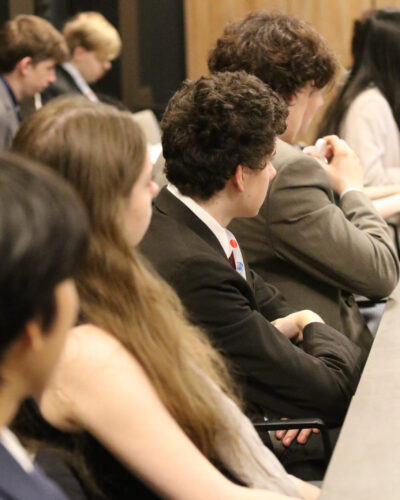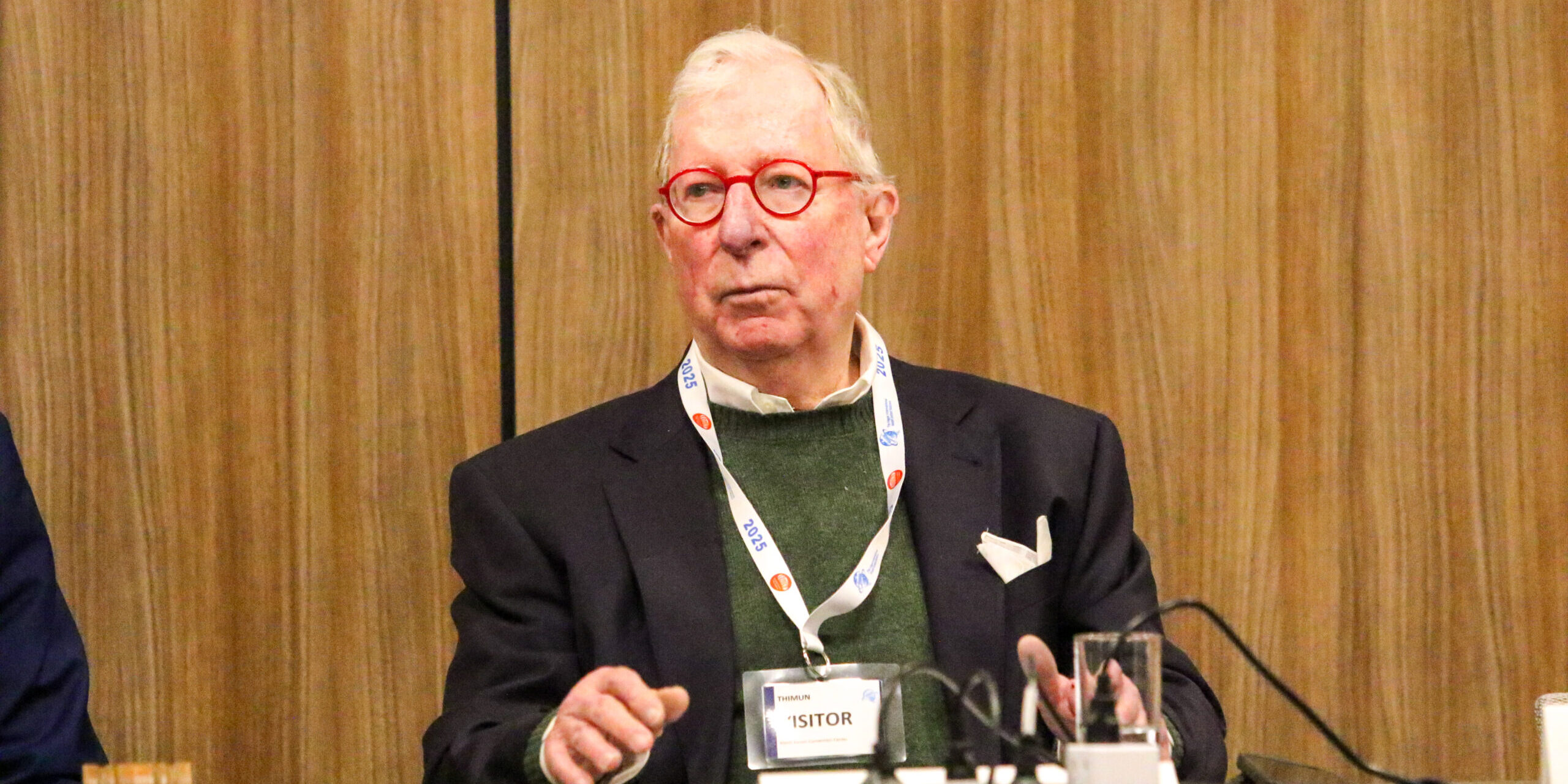Peace for Israel-Palestine: Edward Abington at the HSC
By Jina Song
Photography by Lilly Tourville
On Thursday, January 30th, the Historic Security Council (HSC) welcomed Edward Abington, a former United States consul general in Jerusalem. During his presentation, followed by questions and answers from the delegates, he provided critical insight into the HSC’s third topic: “The outbreak of the Lebanon War, June 6, 1982.” Mr. Abington was deeply involved in U.S. policy regarding the Israel-Palestine conflict. At first, he “thought there was a way forward to peace,” but the continuous violence between radicals of both parties “undermined the support and facilitation of a negotiation.” In his estimation, those people who resorted to violence “derailed a political process which could have brought peace.”
Almost daily, Mr. Abbington was reminded of the violence unleashed in Lebanon and the entire region. “In 1975,” he recalled, “I served in Israel. I remember one day after leaving the American embassy, there was gunfire. I saw flashes of gunfire over my car.” As tensions between the Lebanese forces aligned with Israel and the Palestinians intensified, the violence came closer to his residence in Beirut. On one occasion, “I could see the house of Arafat [the leader of the Palestinian Liberation Front PLO] from my balcony,” obviously, a clear target for an attack. Such experiences solidified his belief that peace must come before violence. When asked what advice he would give to today’s global leaders regarding the Israel-Palestine conflict, he responded without hesitation: “You can’t kill your way to peace.”

The evident unequal treatment of Palestinians living in the occupied areas and in Israel reminded Mr. Abbington of his childhood experiences.“I’m from Texas where the discrimination of American Blacks was at its peak…. I thought that was fundamentally wrong.” Witnessing racial injustice early on shaped his diplomatic approach: “I go against oppressors when I see one group trying to dominate another.” From his perspective, a key factor in solving the Israeli-Palestinian conflict revolves around ending the apparent segregation and discrimination of Palestinians.
During the Q&A session, Mr. Abbington provided further insight into the topic, and his observations touched upon the current crisis unfolding in the Middle East. In response to the delegate of Japan who asked about the UN’s role in the current Israel and Palestine conflict, Abbington critically noted that “The US thinks it can solve a problem by using the UN Security Council only when it suits its purposes.” With a strong degree of pessimism, he noted that “for decades [Israel] has tried to impose its will on the Palestinians, the Lebanese, and other Arabs—but with no success.” From his perspective, the US reluctance and failure to pressure Israel to address the Palestinian issue, and the deep-seated suspicion and animosity held by both sides prevent any resolution of the conflict and ongoing humanitarian crisis. “I would advocate a more even-handed approach.” The U.S. should be firm and assist in providing humanitarian aid and security for all parties.
When asked by the US delegate about Prime Minister Netanyahu, Mr. Abbington frankly stated that the Israeli prime minister “has been consistent in his political makeup to do everything to prevent the emergence of a Palestinian state. He made some major mistakes, especially when allowing Hamas to operate in order to undermine the PLO.”
A final note to the delegates
The diplomat’s role is to represent their country’s position “whether you like it or not.” At the same time he urged the potential future leaders assembled in the room to challenge those ideas they don’t agree with but at the same time to always be open to listening to the other side. “Be prepared to compromise where possible but do so without sacrificing your own position or values.” He concluded with a strong message. “Being in this room with all these international youth is a great opportunity…. Keep going at it, because you are the future for all of us.”








